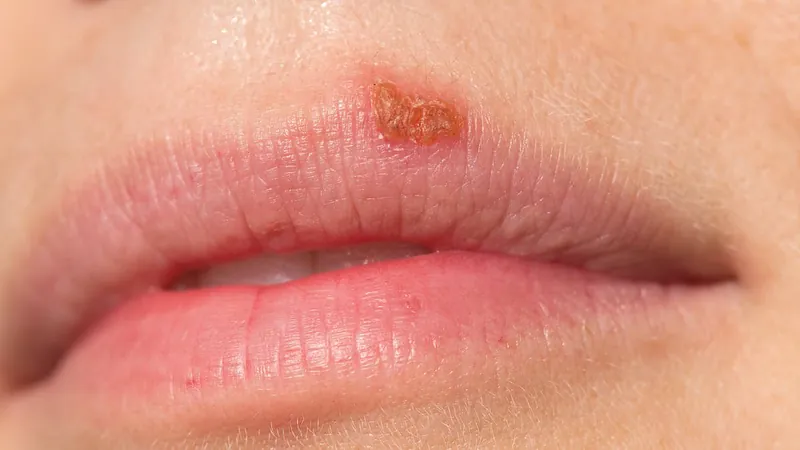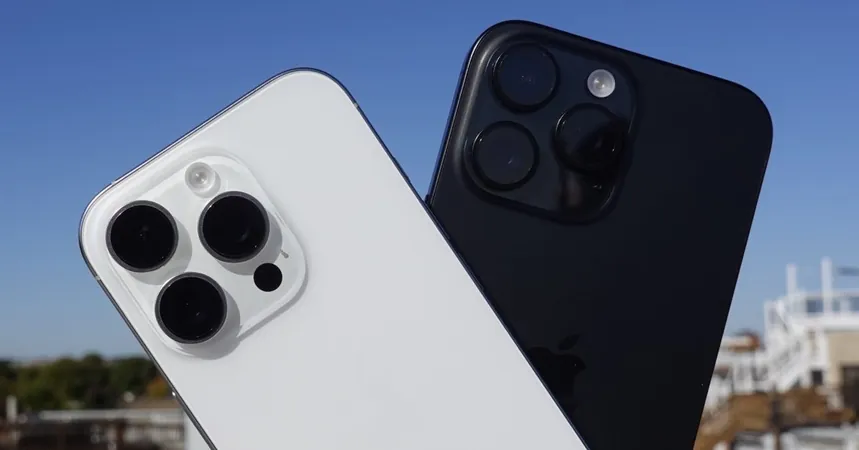
This Cold Sore Could Be a Hidden Danger: Doubling Your Dementia Risk!
2024-11-22
Author: Jessica Wong
The Shocking Link Between Cold Sores and Dementia
Scientists from Sweden have made a groundbreaking discovery by exploring the correlation between the herpes simplex virus-1 (HSV-1), the culprit behind cold sores, and Alzheimer's disease. Their exhaustive study tracked over 1,000 elderly participants for a staggering 15 years, revealing that those infected with HSV-1 were twice as likely to develop dementia compared to their uninfected counterparts.
But what might be causing this troubling connection? Researchers speculate that HSV-1 hides within our nervous system for life and can flare up intermittently. These flare-ups may trigger inflammation within the central nervous system, potentially leading to the brain damage associated with dementia. This is a concerning notion as it suggests that what we once thought of as an annoying cosmetic issue might have serious long-term health implications.
A Wider Investigation Into Viral Threats to Brain Health
This isn't an isolated inquiry; studies have increasingly pointed to a broader issue regarding common viruses and their potential effects on cognitive health. Recent investigations have also connected the varicella-zoster virus—the virus responsible for chickenpox and shingles—to alterations in brain function.
Despite these findings, experts remain cautious. While some studies indicate a link, others contest it, asserting there is insufficient evidence to establish a clear connection between HSV-1 and cognitive decline. A recent analysis found no substantial association between the virus and memory issues, leading to a mixed bag of conclusions within the scientific community.
How Common is HSV-1?
Incredibly, HSV-1 affects a significant portion of the population, with estimates suggesting that 50 to 80 percent of American adults are infected. Although it's primarily transmitted through close, personal contact like kissing, it can also be spread through sharing food or drinks—methods many might not consider. It’s also notable that the virus can have severe repercussions for newborns if transmitted during childbirth.
Once infected, many individuals experience mild symptoms, usually beginning with fever and sore throat, followed by the dreaded cold sore—an unsightly, painful ulcer on the lip or mouth. Treatments typically involve antiviral medications or pain relievers to alleviate symptoms during an outbreak.
The Data Behind the Dementia Risk
The Uppsala University team reported their findings in December 2023, indicating that many who developed dementia during the study had a history of HSV-1 infection. While the numbers sound alarming—32 subjects progressed to Alzheimer's and 63 percent experienced other forms of dementia—the researchers acknowledged limitations in their study, including the inability to account for age-specific impacts and other health conditions like diabetes or heart disease.
In the U.S., dementia affects roughly 4 percent of adults over age 65, while HSV-1 prevalence is significantly higher. A 2024 study out of South Korea further corroborated these findings, suggesting that both HSV-1 and the varicella-zoster virus increase dementia risk. Still, some experts, such as Dr. Jagan PillaI from the Cleveland Clinic, urge caution, advocating for more robust studies to clarify the relationship before reaching firm conclusions.
Takeaway: What You Need to Know
While the potential link between cold sores and dementia is potentially alarming, experts like Dr. Monica Gandhi remind us not to panic just yet. The ubiquity of herpes infections among younger populations versus the lower rates of dementia suggests that there may be no direct cause-and-effect relationship.
In summary, while cold sores are certainly uncomfortable and embarrassing, their possible connection to dementia adds another layer of complexity. Anyone dealing with frequent outbreaks should consult a healthcare professional, not just for skincare but also to possibly explore cognitive health implications. Stay informed and take care of your overall health—your future self may thank you!


 Brasil (PT)
Brasil (PT)
 Canada (EN)
Canada (EN)
 Chile (ES)
Chile (ES)
 España (ES)
España (ES)
 France (FR)
France (FR)
 Hong Kong (EN)
Hong Kong (EN)
 Italia (IT)
Italia (IT)
 日本 (JA)
日本 (JA)
 Magyarország (HU)
Magyarország (HU)
 Norge (NO)
Norge (NO)
 Polska (PL)
Polska (PL)
 Schweiz (DE)
Schweiz (DE)
 Singapore (EN)
Singapore (EN)
 Sverige (SV)
Sverige (SV)
 Suomi (FI)
Suomi (FI)
 Türkiye (TR)
Türkiye (TR)